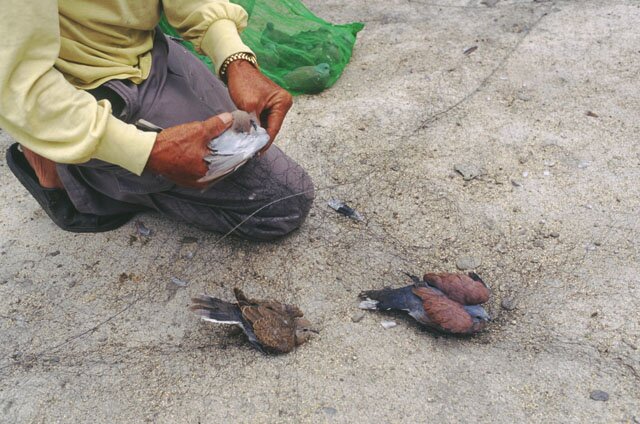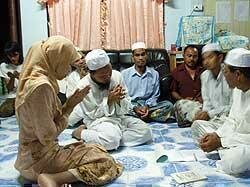BROWSE COUNTRIES/ TERRITORIES
Organised crime
India is reeling from the discovery of a network of brokers and health workers dealing in kidneys.
India may be suffering from inflation, but the price of a black market kidney has actually gone down, if documents filed by the police in a recent raid are anything to go by.
In October 2007 police in Mumbai arrested a famous doctor, Palani Ravichandran. Together with him were four persons believed to be touting his kidney transplant business. The arrest has opened up a big can of worms in another major Indian city, Chennai.
At first, authorities in Chennai believed Ravichandran to be a rogue doctor who performed the illegal operations more or less by himself. Or at least they portrayed him as such. But as investigations carried on, the scope of the entire set up has led to an inescapable conclusion. There is an entire network of brokers, sub-brokers and doctors and hospital administrators who worked together to suck gullible kidney ‘donors’, mostly poor women, into two Chennai hospitals where Ravichandran would pay them a small sum to take out one of their kidneys. He would then transplant the kidneys into patients for much higher sums.
Depending on circumstances, the man Indian media dubbed “Doctor Dread” could pay a donor Rs 25,000 (US$630) for a kidney. This is low even by black market rates. A similar kidney transplant scam exposed in Mumbai four years ago showed that the then-prevailing rate for a kidney was at least Rs 30,000. In four years, the price of an illegal kidney has come down by 17%.
Ravichandran paid low but charged high. His patients forked out up to 100 times as much, Rs 25 lakh (2.5 million) for a transplant. Seized documents showed that he had performed 471 kidney transplants in St Thomas Mount and Bharati Raja hospitals. And became a rich man because of them.
Ravichandran owns three bungalows and three farmhouses. Adding all his known assets together, he is worth Rs 100 crore (US$25 million). (Lakh and crore are popular South Indian numerics. A lakh is 100,000, while a crore is 10 million, or 100 lakh).
Ravichandran had been running his operations for four years before a complaint by an unemployed young man in Mumbai led to his arrest. The youth was promised Rs 4 lakh for his kidney but was paid only Rs 25,000, or one-sixteenth of the amount.
The man was an exception. Ravichandran obtained most of his kidneys from women who had little means to raise cash. One of them, Uma Devi, told an Indian magazine that she did it because “I had a daughter of marriageable age and no economic means to get her married”.
Uma’s plight also illustrated how easy it is to get past the India Transplantation of Human Organs Act of 1995, which prohibits unrelated persons from donating organs to a patient. As a piece of legislation designed to prevent the illegal sale of organs, it has been proven to be woefully inadequate.
Once Uma signed up with Ravichandran, she was sent to Sri Lanka under a false name, Govindamma, and a false Indian passport. A month later she returned as Govindamma, on a Sri Lanka passport, and showed herself to be a relative of Maheshwaran, a Sri Lankan who needed a kidney transplant. The rest was easy – Ravichandran performed the surgery and collected the money, paying Uma a small portion out of it.
(The Transplantation Act allows unrelated persons to donate organs, but only after many layers of screening. It was obviously much easier, and cheaper, for Ravichandran to get the operations done using false papers.)
A series of interviews with Uma and those like her point out that there were more than one doctor involved in the racket. One reason why many women agreed to selling their organs was because they were persuaded by doctors. Said one, “They spoke so well, and they were doctors, after all. We trusted them.”
The affair has become a major issue in India, with renewed calls to tighten up the organ transplant laws. There are also calls to bring those responsible to justice, including government officials who knowingly let Ravichandran carry out his work as long as there was no breach in the letter of the law.
Ironically, Ravichandran was hired by the police in Chennai as a consultant following the 2004 Boxing Day tsunami. His job was to prevent organ trade in India. By then he had run his black clinic for more than a year. Working with the police helped Ravichandran to modify his operations and to plug the loopholes.
C Natesan, managing director of Bharathi Raja hospital, has denied any involvement. He claimed that Ravichandran “used to hire our operation theatre for surgeries and used to move his patients within a day or two.” He also tried to pass the blame to the other hospital named in the case, St Thomas.
“All consultations, tests and diagnoses were conducted at St Thomas with which he is associated,” he said. Not many in the medical profession find his comments convincing.
Login or Register
 Lee Han Shih is the founder, publisher and editor of asia! Magazine.
Lee Han Shih is the founder, publisher and editor of asia! Magazine.
- Asian Dynasties and History
- Conservation of the Environment
- Definition: Culture
- Economy and Economics
- Food and Recipe
- Geopolitics and Strategic Relations
- Health and Body
- Of Government and Politics
- Religion and Practices
- Social Injustices and Poverty Report
- Society, Class and Division
- Unrest, Conflicts and Wars

































 Another Point
Another Point From Jerusalem to the West Bank
From Jerusalem to the West Bank
Comments
Post new comment